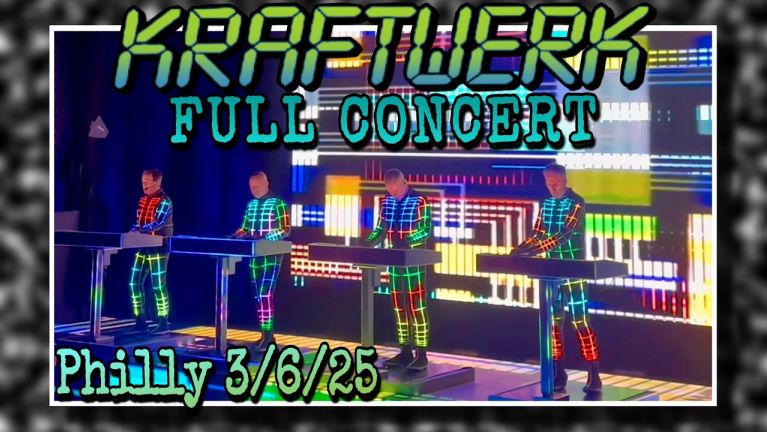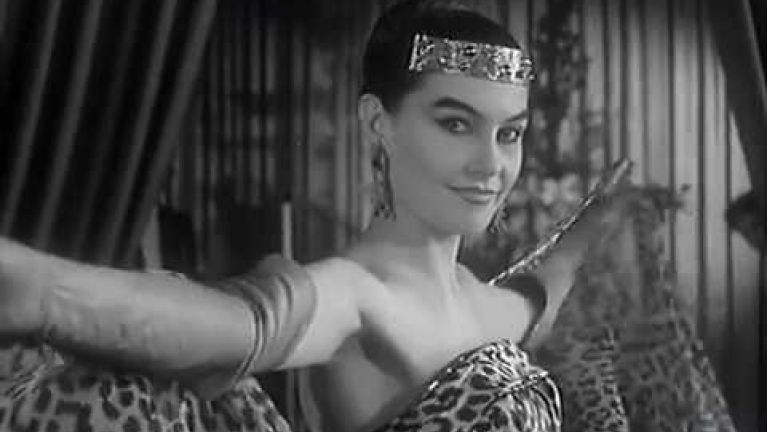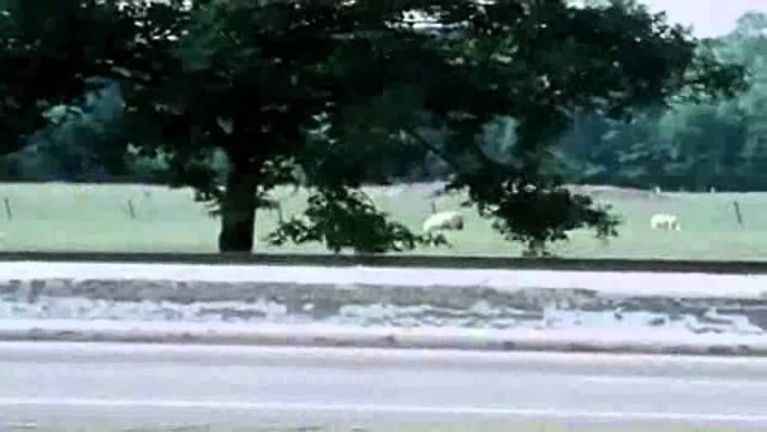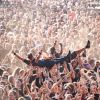Kraftwerk: autobahn to infinity
Currently on tour, the German group Kraftwerk has shaped global pop modernity with its electronic music for 55 years – and is celebrated above all in the United States.
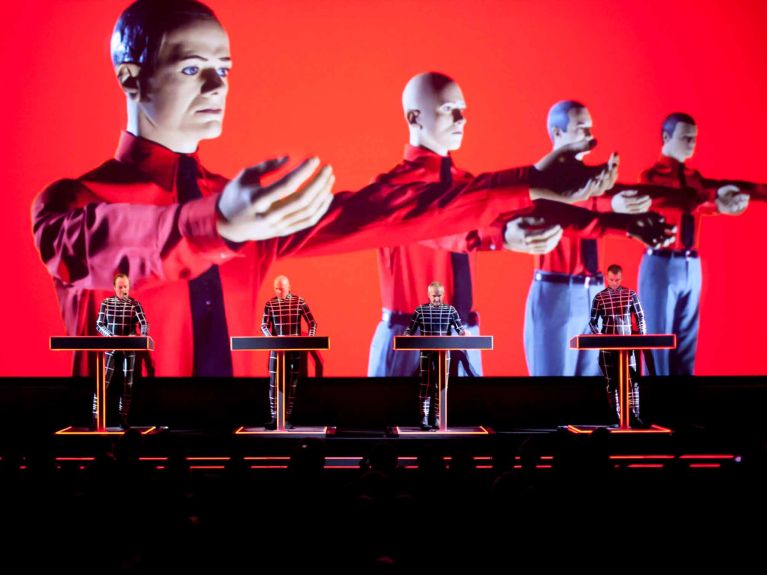
When the lights go down at Philadelphia’s Franklin Music Hall in March 2025, an odd stillness settles over the room – until the machine comes to life. A robotic voice greets the audience and counts down; a synthetic beat starts up; four men in neon suits stroll onto the stage as numbers flicker across the screen behind them. The hypnotic spectacle of Kraftwerk begins. It is a moment that condenses the band’s long journey: what started in a rear courtyard in Düsseldorf in 1970 continues to captivate millions around the world and is now filling major venues on a new global tour.
Dieses YouTube-Video kann in einem neuen Tab abgespielt werden
YouTube öffnenThird party content
We use YouTube to embed content that may collect data about your activity. Please review the details and accept the service to see this content.
Open consent formFrom Kling-Klang to the world formula of electronic music
Kraftwerk’s founders and masterminds Ralf Hütter and Florian Schneider developed an entirely new sonic aesthetic. In their sound laboratory, the Kling-Klang Studio, they worked on their own networks of devices and rhythm machines. The vocoder breaks speech into frequency patterns and recombines them; without it, Kraftwerk’s characteristic robotic voices would be inconceivable.
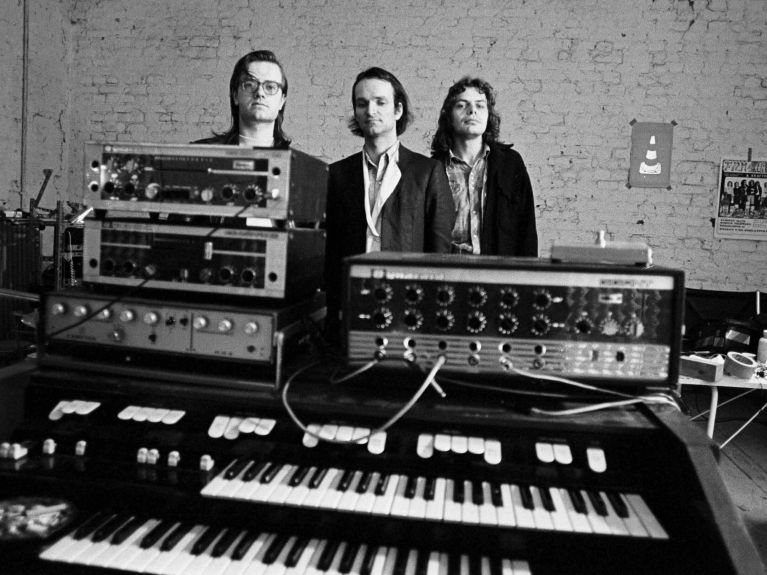
Schneider once said: “Kraftwerk is not a band, it’s a concept – a man-machine” – an understanding that shapes the group’s music, minimalist stage presence and lyrics. Kraftwerk’s lyrics seem matter-of-fact, pared down, almost like protocol notes. “Das Model” (1978), for example, adopts the tone of a detached observer: “She’s a model and she’s good-looking” describes less a person than a mechanism of perception and exposes how the media operates.
Dieses YouTube-Video kann in einem neuen Tab abgespielt werden
YouTube öffnenThird party content
We use YouTube to embed content that may collect data about your activity. Please review the details and accept the service to see this content.
Open consent form“Die Roboter” (1978) reverses the relationship between humans and machines; the line “We function automatically” plays with the question of who is controlling whom. This comes across on stage as well: the four musicians stand almost motionless behind identical consoles while avatars and animations provide the visual effects. “Computerwelt” (1981) illustrates a future that has long since become the present: data streams, surveillance, networked systems.
USA: German machines in the homeland of pop
“Autobahn” (1974) gave the group its international breakthrough. The 22-minute title track became an unexpected hit in the United States. Many American listeners initially misheard the German refrain “Fahr’n, fahr’n, fahr’n” as “Fun, fun, fun” – an involuntary link between German coolness and US pop tradition, almost a futuristic echo of the Beach Boys. This was followed by works such as “Trans-Europe Express”, “Die Mensch-Maschine” and “Computerwelt”, now regarded as early milestones of electropop. Hütter once expressed the group’s approach this way: “We’re not so much interested in chord changes as in the sound itself – the space it moves in.”
Dieses YouTube-Video kann in einem neuen Tab abgespielt werden
YouTube öffnenThird party content
We use YouTube to embed content that may collect data about your activity. Please review the details and accept the service to see this content.
Open consent formIt is one of the most remarkable twists in pop history that Kraftwerk, of all groups, should be celebrated in the United States – the homeland of pop – with uncompromisingly stylised music that is concept-driven and with lyrics mainly in German. In 1982, hip-hop DJ Afrika Bambaataa fused “Trans-Europe Express” and “Numbers” to create the classic “Planet Rock” – a track that shaped electro and techno worldwide. In Detroit, Kraftwerk later influenced techno pioneers Juan Atkins, Derrick May and Kevin Saunderson. Atkins spoke of “the ideal sound of a futuristic city”. Numerous major names in the American music scene cite the Düsseldorf group as an inspiration: from Dr Dre to Pharrell Williams, Trent Reznor (Nine Inch Nails) and LCD Soundsystem to Timbaland and Kanye West. Plenty of European artists agree: David Bowie dedicated “V-2 Schneider” to Kraftwerk, Daft Punk have called them “ancestors” and New Order describe them as pioneers of a new musical language.
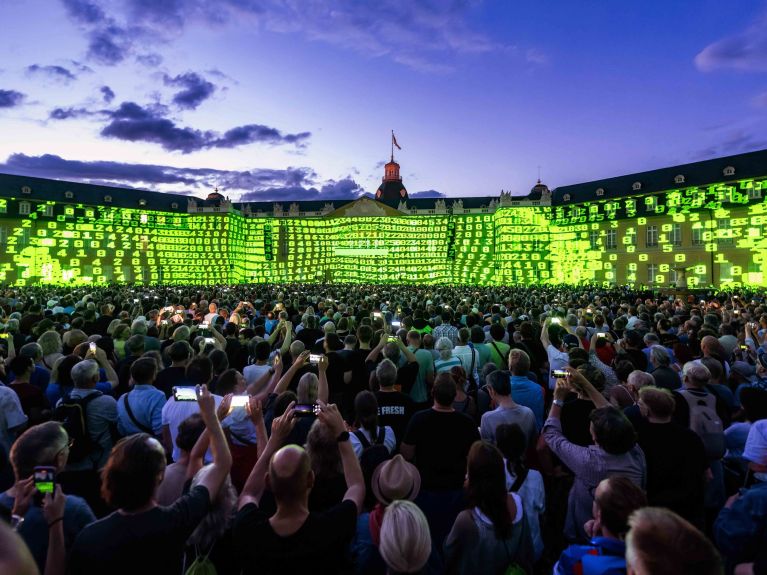
The machine keeps running
The “50 Years of Autobahn – Multimedia Tour” is taking Kraftwerk across the USA and Canada in spring 2025, with around 30 shows. Skateboard legend and Kraftwerk fan Tony Hawk announced the tour in a video. The American press has been enthusiastic: the Philadelphia Inquirer wrote of a “neon-lit kinetic experience”, while Post-Punk described the Brooklyn concert as “incredibly immersive”.
Co-founder Florian Schneider did not live to see this renewed success; he died in 2020 at the age of 73. In November 2025, his estate will be auctioned in Nashville – including vintage synthesisers, a racing bicycle from Tour de France and an iconic Sennheiser vocoder that fetched 256,000 dollars. Schneider’s equipment is regarded as historic evidence of the pioneering work on which electronic music is built. But Kraftwerk remains active: after the US tour, the band will play numerous concerts in Europe in 2025, and dates in Asia and again in Europe are planned for 2026. The machine keeps running – partly with a new line-up but with the same precise elegance that has defined the group for 55 years.
